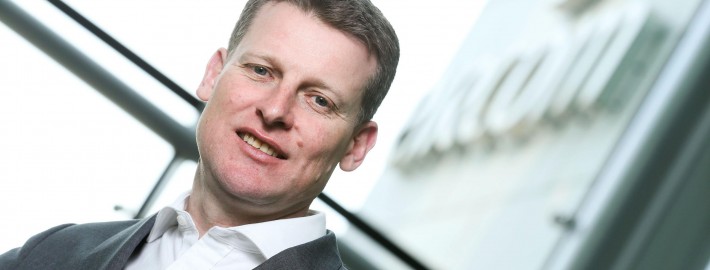Crossing the chasm
It’s been the subject of heated debate in the boardrooms of corporate Ireland for quite some time. But can we finally hear a collective sigh of relief?
It appears we may be getting to grips with tackling the country’s broadband deficit, following a sustained period of network investment by the major telecoms services operators. And not a moment too soon.
In its latest report to Q3 2013, the Commission for Communications Regulation (ComReg) notes significant improvements in fixed and mobile networks.
As of September 2013, 32.5 per cent of all fixed broadband subscriptions were equal to or greater than 30Mbps, up from 19.9 per cent in the same period in 2012. And even at the lower end of the market, 42.1 per cent of all fixed broadband subscriptions were equal to or greater than 10Mbps, up 11 per cent on Q3 2012.
It’s equally encouraging on the mobile side, with the launch of 4G services by Vodafone and Eircom/Meteor in the last quarter of 2013. Three launched their 4G service on January 27, with free access for Bill Pay and Prepay customers until July 31. O2 will follow suit later this year.
“Such improved fixed and mobile services would not have been made available to consumers and businesses without the collective investment of authorised operators in Ireland’s communications infrastructure,” according to ComReg chairperson, Kevin O’Brien in his annual assessment of the market.
“In particular, eircom, UPC, Sky, Vodafone, O2, Three and Meteor have invested significantly in 2013. Their decisions to invest and upgrade our communications network will undoubtedly assist the country on its journey to economic recovery,” he said.
David Walsh, director of commercial & SME with Eircom Business (pictured left) acknowledges a “certain underinvestment over the years” but believes we’ve largely caught up with broadband penetration rates now lying within a few percentage points of the EU average.
“There’s always some degree of economic challenge in terms of how you service some locations and by that I mean that genuinely remote locations,” he said.
“Eircom’s strategy is to provide fibre services and complement that with 4G. We’re building a ‘network for a nation’ and thanks to a €1.5 billion investment plan, we’ve committed to extending our fibre footprint to 70 per cent of the country’s homes and businesses by July, 2016. We’ll also have 4,000 Wi-Fi hotspots so between rollout of fibre and 4G services, there’ll be a very high degree of coverage,” he said.
Vodafone Ireland has invested almost €1 billion in its mobile network to-date with an objective “to have data everywhere we have voice by the end of the calendar year” according to Leo O’Leary, head of sales with the company.
“In essence, we will have 99 per cent of the country covered in 3G. That’s going to address definite areas where there’s still no alternative from a fixed DSL perspective, and I think that’s very exciting.”
UPC has also invested €1 billion in its network infrastructure over the last five years to bring it to next generation standard. It provides services over its Hybrid Fibre Coaxial (HFC) network to over 60,000 SMEs (the same infrastructure that delivers its consumer services) as well as fibre-rich connectivity delivering typical speeds of 10Gbps for customers such as Google and Amazon.
“On fibre, we can actually deliver anything up to 100Gbps,” according to Gavan Smyth, VP of business services with UPC. “Fibre can carry the speed. It’s the electronics at either end of the connection that prevent us from delivering more. If the manufacturer makes a 40Gbps device, then that’s what we deliver.”
UPC’s network investment has continued apace in 2014 thanks to a recent upgrade to 250Mbps in its fibre power broadband speeds for SME customers. With upload speeds of up to 10Mbps and up to eight telephone connections at no line rental fee, it claims its €99 monthly charge represents a “competitively priced alternative data network connection”.
And network investment isn’t just limited to the larger market stalwarts. Smaller, niche players such as Viatel (formerly Digiweb) and AirSpeed Telecom are capturing market attention with their own business-grade connectivity bundles.
Stephen Brady, senior product manager with Viatel highlights his company’s on-going investment in its national microwave radio service.
“We can provide fast, secure connectivity (up to 1Gbps) nationwide without having to deploy expensive leased lines or lay fibre between locations,” he said. “In addition, we offer a satellite-based service which gives customers up to 20Mbps speeds in any location in Ireland.”
But Peter Hendrick, technical director of AirSpeed Telecom sounds a note of caution.
“Up to now many broadband services are connected into the core fibre network over copper and distance from the core is therefore an issue in terms of the bandwidth that can reliably be delivered. Promised ‘fibre’ offerings should be questioned in this regard.”
AirSpeed is currently developing its own end-to-end fibre offering for SMEs with the roll out of AirSpeed Fibre Connect expected from April this year.




Leave a Reply
Want to join the discussion?Feel free to contribute!